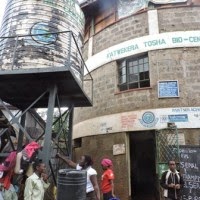Ep 6: US and Kenyan citizen responses to COVID-19: Masks, Misinformation and Mistreatment
COVID-19 has entered the consciousness of all people around the world, but not all have chosen to accept it. Conspiracy theories, accusations against the government and denying its existence have been prevalent in many countries, such as Kenya and the US.
In March, the US Center for Disease Control announced that masks were only for those who were symptomatic, while the Kenyan government closed airports, churches, schools and mosques. In April, individual US states started to mandate mask wearing for everyone. In May, Kenya ordered a countrywide mask mandate with a fine of Sh20,000 or imprisonment not exceeding 6 months or both. Both experienced shutdowns and reopening, drops in economic prosperity and employment, and both had relatively similar responses to COVID-19.
In the US, many reacted negatively with the announcement of a pandemic. Many reject the idea of such a virus, calling it a hoax and creating conspiracy theories to try and disprove COVID-19 and public health officials’ responses. Most popular is the use of social media to disseminate this information, mostly on platforms such as YouTube and Facebook. Many believe that COVID-19 is a ploy for the rich and powerful to control the masses, while some believe it is governmental authoritarianism to enforce lockdowns (varying by state) and mask-wearing mandates (again varying by state). Even as the US has the most COVID-19 cases and deaths in the world, many don’t believe in the existence of such a terrible virus.
In Kenya, there was a slightly similar response. Disbelief in the virus is prevalent in communities that are misinformed. These communities are mainly slums where people believe the virus is only for the rich or that alcohol can protect against COVID-19. Strict government rulings like mandatory mask-wearing, banning religious and social gatherings and nationwide curfew of 7pm to 5am have also garnered backlash, with some citizens believing it is an authoritarian move. Even so, the response and tensions in the two countries are very different. Kenya does not have as many cases as the US, but there are various reasons why.
First, the Kenyan nationwide mask-wearing, curfew and ban on large gatherings has slowed the spread significantly. The US had no such national action and still has not had such an action. Second, Kenya has tens of thousands of Kenya Red Cross volunteers that reach out to the community and educate the people about the importance of hygiene, mask-wearing, social distancing and information about COVID-19. The US has no nationwide initiative to educate the public about the importance of COVID-19 and precautions against it. While in Kenya people don’t have as much access to clean water and sanitation, as well as quarantine spaces, precautions put in place are believed to have slowed the spread. However, access to COVID-19 tests is lesser in Kenya than the US, leading to a lower reporting of cases and possibly more cases than reported. The backlash against these precautions have been prominent in both Kenya and the US.
In Kenya, with the curfew and mask-wearing, police are responsible for enforcement, leading to protests against police officers abusing their power. Kenya’s police force is notorious for being corrupt, but it is further exposed to the curfew and mask-wearing arrests. Between March to June, 15 people, including a 13-year-old boy, have been killed by police while enforcing new restrictions. With the pandemic, people continue to protest the injustice and corruption of Kenyan police, hoping for police reform and a change in the system.
In the US, people have been protesting the lockdowns at the capitols of their states, many without wearing masks or social distancing. Despite all this, police were not aggressive to these protesters. However, when the US Black Lives Matter movement reemerged with the death of George Floyd, curfews were enacted in several cities to dissuade these protesters and give police officers the right to arrest these people. Tear gas, arrests and rubber bullets were deployed to break these protesters apart. While this movement did not have a resurgence due to the pandemic, the pandemic further exacerbated the systemic racism prevalent in US society and in the police force.
Both countries' citizens have experienced misinformation about COVID-19 and strict rules centering around preventing community spread, as well as police abuse. However, the impact of COVID-19 affects all people, no matter what socioeconomic status or where in the world one lives. Learning and understanding scientific facts as well as adhering to health precautions are important to combat misinformation and lessen the impact of COVID-19. Kenya and the United States, while on opposite sides of the world and with different resources and economies, are both suffering from the same virus. COVID-19, for better or for worse, ultimately unifies us all.
Written by Crissy Saks
Cited Sources:
Achuka, V. (2020, May 13). You face arrest you for not wearing a face mask in public. Daily Nation.
https://www.nation.co.ke/kenya/news/you-face-arrest-you-for-not-wearing-a-face-mask-in-public-285946
Associated Press. (2020, June 26). Kenya: 3 People Killed in Clash With Police Over Face Masks | Voice of
America - English. VOA News. https://www.voanews.com/covid-19-pandemic/kenya-3-people-killed-clash-police-over-face-masks
Bellamy, W. M. (2020, June 16). Kenya’s Case of Covid-19. Center for Strategic International Studies.
https://www.csis.org/analysis/kenyas-case-covid-19
CDC. (2020, August 13). Coronavirus Disease 2019 (COVID-19) in the U.S. Centers for Disease Control and
Prevention. https://www.cdc.gov/coronavirus/2019-ncov/cases-updates/cases-in-us.html
Chabria, A. (2020, May 24). Role of extremist groups at California lockdown protests raises alarms. Los
Angeles Times. https://www.latimes.com/california/story/2020-05-24/shutdown-protestors-crowd-capitol-sacramento-coronavirus-reopen-california
Gottbrath, L.-W., Formichella, L., & Abdalla, J. (2020, June 1). George Floyd protesters undeterred by US
curfews: Live updates. https://www.aljazeera.com/news/2020/05/george-floyd-curfews-extended-protests-spread-live-200531204512954.html
Rogers, K. (2020, May 21). How Bad Is The COVID-19 Misinformation Epidemic? FiveThirtyEight.
Smith, G. (2020, May 13). Stamping out misinformation in Kenya’s COVID-19 fight. Al Jazeera.



Comments
Post a Comment